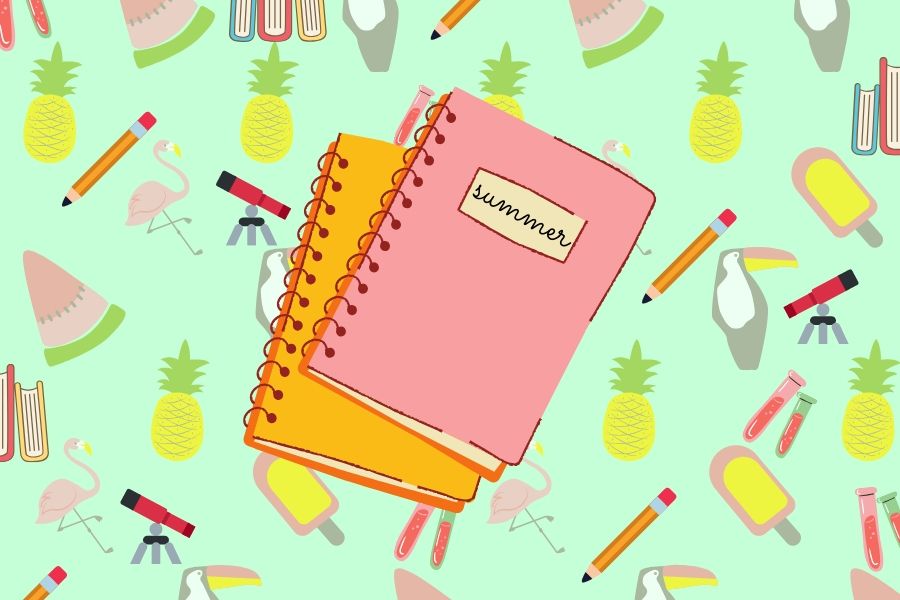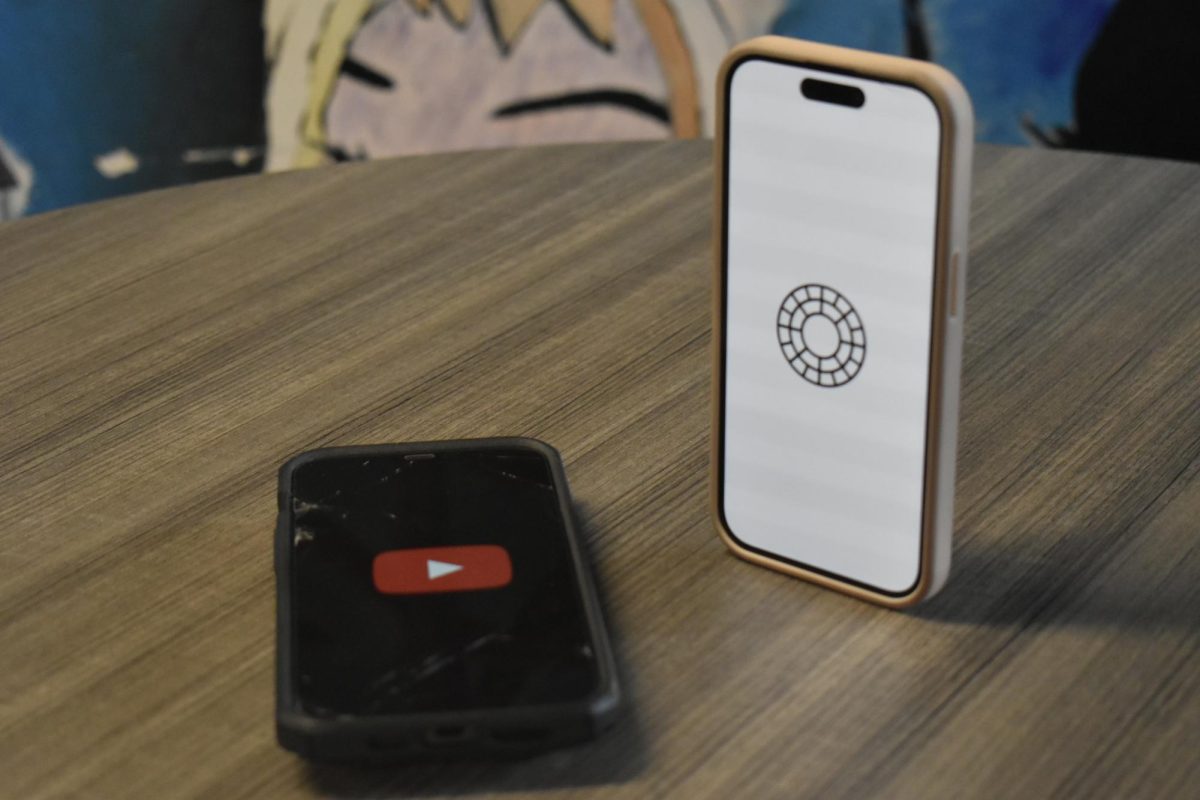The “summer slide” refers to how long breaks from school, like summer vacation, lead to students getting out of practice. Due to extended online learning, some experts believe summer learning loss this year will have a greater impact. However, just because school is out doesn’t mean we have to stop learning. Here is a compilation of free resources and ideas to help you stay at the top of your game all through summer, paired with a score of social connection in this time of confinement.
1. Khan Academy
Khan Academy has a reputation for being a great, free learning platform. There are lessons on just about anything from chemistry to college admissions. It’s also a great tool to practice for the SAT and PSAT standardized tests. The explanatory lessons take a step-by-step approach to mastering a subject and are filled with fun surprises. Like Duolingo, Khan Academy is designed as a game, so you’ll earn more points with each lesson!
Accessibility: Computer and Mobile
Social Factor: 6/10 (compete with friends!)
2. Libby
Libby is a mobile library. You can learn how to use it really quickly and find yourself reading books in no time. Reading is said to be the best way to maintain and improve writing and reading skills while also reducing stress. Reading also strengthens mental stamina and focus, which will help you get off to a running start come August.
If you want to skip the screen, opt for any printed material instead. Summer is the perfect time to read something you like, and maybe you’ll discover something new that you want to know more about.
Accessibility: Computer and Mobile (download app on both)
Social Factor: 5/10 (talk with friends about your book!)
3. Duolingo
Duolingo is a free language-learning app that’s basically a game. While learning a language might not seem like it can help you with math, studies show otherwise. Learning a language is proven to strengthen memory, problem-solving skills, intellectual vitality and also enables you to connect and share ideas with people around the world.
Accessibility: Computer and Mobile
Social Factor: 7/10 (compete with friends and practice speaking together!)
4. Science Experiments

The best part of science experiments is that you can make them your own. You could use it as an excuse to make 64 cupcakes —you have to be certain that you have enough data— or grow baby bean plants —try it and tell me if they don’t make you smile. You could look at concepts you learned in class for inspiration, or find ideas online. Science experiments are a blank canvas and you’re guaranteed to learn something.
Accessibility: Common household items (may require a quick trip to the store)
Social Factor: 5/10 (Share your discoveries with friends or post them to social media.)
5. Enjoy nature

Voyaging from the couch to the outdoors has more benefits than you may think. Aside from the fresh air and sunshine, studies show that exploring the natural world can actually boost academic performance by improving focus and sparking a love for learning. While social distancing mandates still apply, all parks in St. Louis City and County are now open for use as of May 18.
Accessibility: We have 71 parks, I think you can find one. If not, try a backyard.
Social Factor: 8/10 (social-distance picnic or hike with friends or family!)
6. Learn a life skill
Learning isn’t limited to academics. Sometimes, the most important skills we’ll end up using are learned outside of school. YouTube is home to so many tutorials, and oftentimes, there are blogs devoted to helping amateurs learn skills like sewing, gardening and cooking. There are simulations that can help you learn how to analyze the stock market, one example of many. Set aside some time every day to learn something new.
Accessibility: WiFi and YouTube (I’m pretty sure you’ve accessed this before.)
Social Factor: 5/10 Teach a new friend your rad new skills, or brag about them on social media. You might inspire someone.
7. Writing
A quick Google search will lead to hundreds of contests you can enter, some of which you can find here. Some have super specific requirements, some award cash prizes. If you don’t want to enter an official contest, you can find tons of writing prompts that will simply get you thinking and help you practice jotting down your thoughts. You might even discover that you enjoy writing just for the sake of writing. You can even try freelance writing and make some money on the side. Just be careful: some sites might not be what they seem. Always practice safe internet skills.
You can also get a notebook and pen to write down ideas, shower thoughts, or really anything you want. The best way to improve your writing is to keep doing it. Write your opinion on a topic, make a list, write letters to friends, the list goes on! Since we are in a historic time, it could also be helpful to write about your experience to have something to show your kids. Continuing to write on your own time will help you find your voice so you can tell compelling stories, which are essential to the college admissions process.
Accessibility: All it takes is a quick Google search.
Social Factor: 2/10 Writing is more conducive to independent thought. You could try a partner essay though, and work on cooperation skills.
8. Review Old Notes and Worksheets
This one sounds boring–we know–but finishing practice worksheets or rewriting old essays can help keep things fresh in your brain. Especially in subjects that build off of previous classes, refreshing your memory can help. Learning loss might be at an all-time high next year, given that an online learning environment might not be the optimal learning environment for some folks. You can help mitigate the effects by making sure you know the stuff you need to know.
Accessibility: Hopefully you kept your papers. (No, you can’t “un-burn” them.)
Social Factor: 5/10 (refresh your knowledge with a friend)
If you have any other ideas or suggestions to help fellow students stay on their game this summer, feel free to leave a comment below!






![There are more than 20 open cardio machines at Crunch Fitness. I enjoyed the spacious environment at Crunch, a sentiment that was shared by sophomore Sanjana Daggubati. “[Going to] Crunch Fitness was the right decision because [it] feels more professional. Crunch’s workers are laid back, but not to the point where they don't care,” Daggubati said.](https://pwestpathfinder.com/wp-content/uploads/2025/09/IMG_5242-1-1200x900.jpg)

![Various empty Kit Kat wrappers crowd the desk, surrounded by scoring sheets. While production of Kit Kat flavors in the U.S. is limited, Nestlé, the owner of Kit Kat, manufactures hundreds of unique flavors in Japan, including the flavors ocean salt and passion fruit. “I thought there [were] some interesting flavors, and a lot of them were really unexpected,” senior Elle Levesque said.](https://pwestpathfinder.com/wp-content/uploads/2025/09/image-2.png)


![Pantone’s selection of the 2025 Color of the Year is revealed: Mocha Mousse. Ceramics teacher Ashley Drissell enjoys this year’s selection. “Maybe it’s the name but [Mocha Mousse] reminds me of chocolate and coffee. It makes me hungry. It’s very rich and decadent,” Drissell said.](https://pwestpathfinder.com/wp-content/uploads/2025/02/DSC_0015-1200x800.jpg)



